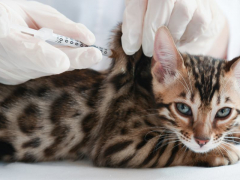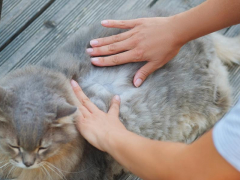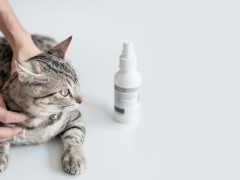
Prednisolone is a synthetic glucocorticoid steroid commonly used in cats as an anti-inflammatory or as a treatment for immune-mediated conditions.
Prednisolone for Cats Overview

In this article you’ll learn what prednisolone is, some conditions it may be used for in cats, and side effects to look out for.
What Is a Steroid?
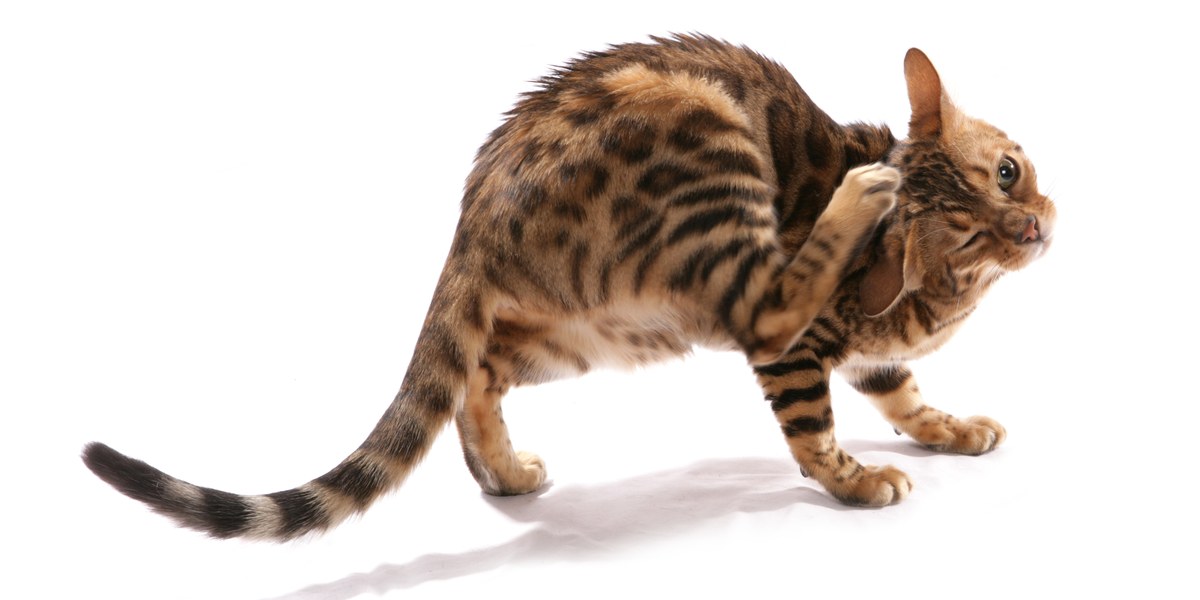
A steroid is an organic compound, with hundreds of steroid compounds found throughout nature. Steroids make up the structure of cells. Cholesterol, for example, is a steroid that composes the structure of cell walls.
Steroids can also act as hormones that act as signal messengers in the body. Most folks are familiar with steroid hormones like estrogens and testosterone.
Anabolic steroids are ones that act in the body to increase muscle and bone growth. These are the ones we often associate with professional body-builders.
A third class of steroids are corticosteroids. Corticosteroids are involved in a variety of functions within the body, including stress response, immune response, regulation of inflammation, and others.
There are natural corticosteroids produced by the body, like cortisol, and then there are synthetic man-made ones, like prednisolone.
What Does Prednisolone Do for Cats?

Prednisolone can be used as an anti-inflammatory at lower doses and as an immune suppressant at higher doses.
At lower doses, prednisolone may be used as an anti-inflammatory. A cat with a red, itchy skin infection for example, may benefit from an anti-inflammatory course of prednisolone to reduce inflammation and itching while antibiotics address the infection.
At higher doses, prednisolone can be used to treat conditions caused by an overactive immune system by suppressing its effects. This can include conditions like feline asthma, caused by the immune system’s response to airborne allergens, and inflammatory bowel disease, caused by the immune system’s response to food allergens.
Predisone vs. Prednisolone

You might wonder why you’re reading about prednisolone, when prednisone is more common. You might also wonder if the two are basically the same thing. The simple answer is they are…and they aren’t.
Prednisone and prednisolone have the same effects on the body. This is because in most species, prednisone is very quickly converted to prednisolone by the liver. But a couple of animal species, including horses and cats, cannot efficiently absorb or convert prednisone to prednisolone.
So this is why, while we often use prednisONE with dogs, we should only use prednisOLONE in cats.
Side Effects of Prednisolone in Cats
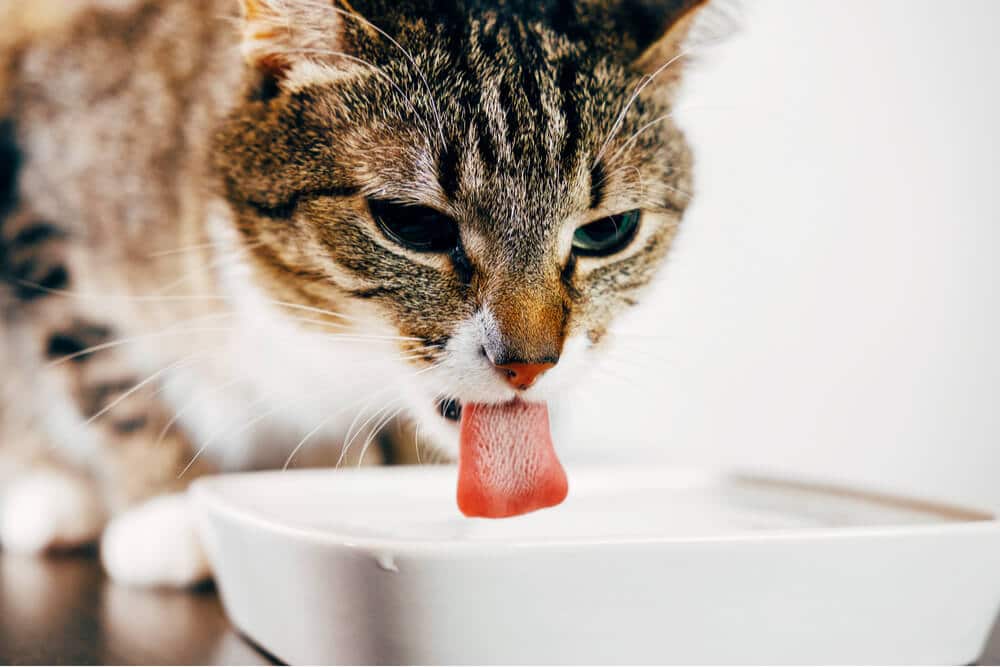
The side effects of prednisolone for cats include increased water intake, increased appetite, and occasionally, digestive upset.
Cats tend to tolerate steroids better compared to dogs and we see fewer adverse effects in kitties. However, there are some important things to look out for, especially for kitties on higher doses of prednisolone.
Increased Thirst
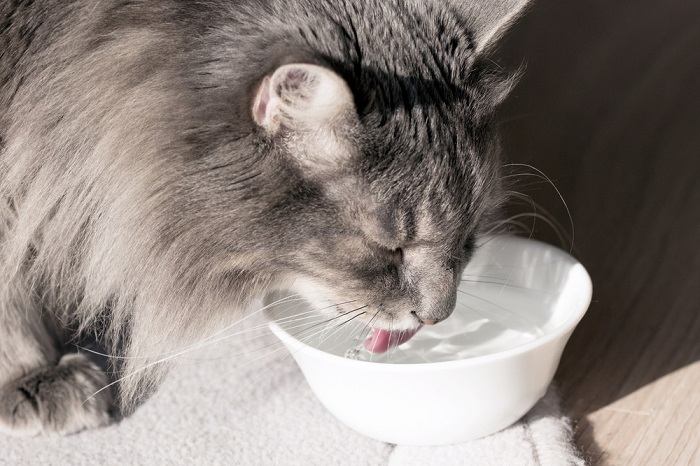
Occasionally, a pet parent may observe their cat on prednisolone to have an increased water intake and subsequent need to urinate more. You might find yourself refilling the water bowl more often, and cleaning up larger urine clumps in the litter box.
Increased Appetite
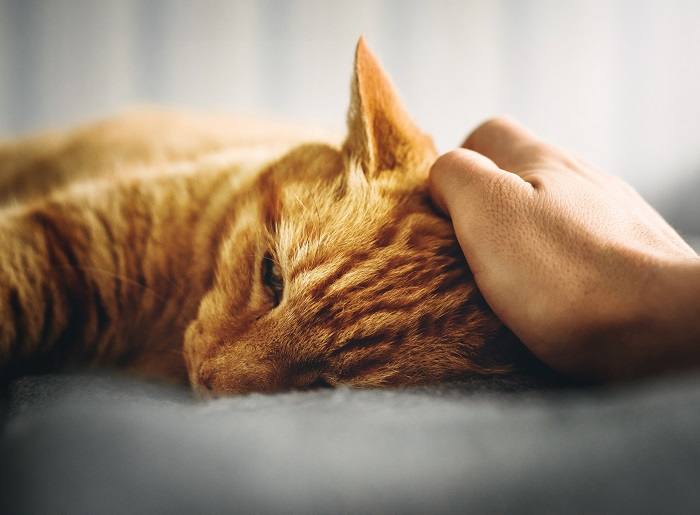
Steroids can also cause an increase in appetite, which can lead to weight gain. For some conditions that cause weight loss, like inflammatory bowel disease, weight gain is desirable, but this is not always the case, so weight should be closely monitored.
Digestive Upset
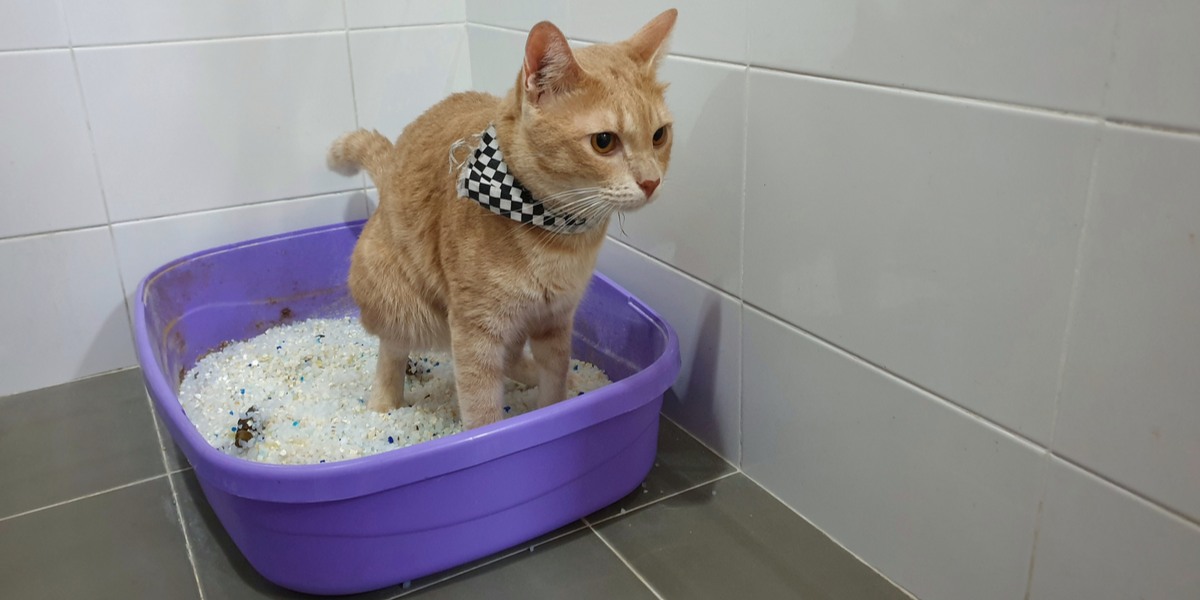
Steroids may cause digestive upset in some cats, usually some soft stool or diarrhea if it happens.
Separate, Long-Term Effects of Prednisolone Therapy Can Also Be Seen.
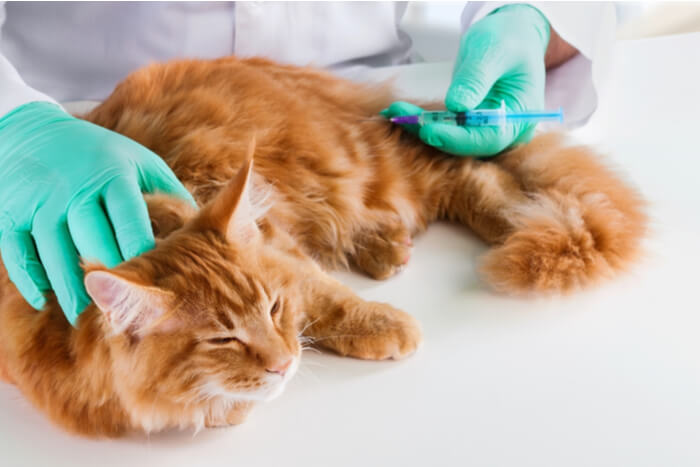
Hypoglycemia is seen in cats
Steroids can contribute to increases in blood sugar in most animals, but in cats, this effect seems to be more prominent. For this reason, steroids should be used cautiously in overweight cats at risk for diabetes mellitus, and should not be used in diabetic cats, as steroid use will interfere with blood sugar regulation.
Long-term use of high doses of steroids can also lead to more serious side effects like a thinning haircoat, and ironically secondary skin problems.
This, in combination with other effects like excessive drinking, urination, and appetite can be lumped into a condition known as iatrogenic hyperadrenocorticism, or synthetic steroid-induced Cushing’s disease. Fortunately, the effects are reversible if steroids are stopped.
And lastly, although the specifics are still debated, there is a perceived risk for cats at risk of heart disease developing heart failure on steroids.
This seems to occur uncommonly in cats with no signs or symptoms of heart disease. Steroids should be used with extreme caution in any cat with known existing heart disease.
As with any medication, using prednisolone must have benefits that outweigh potential risks, especially when used long-term.
Prednisolone for Cats: Dosage
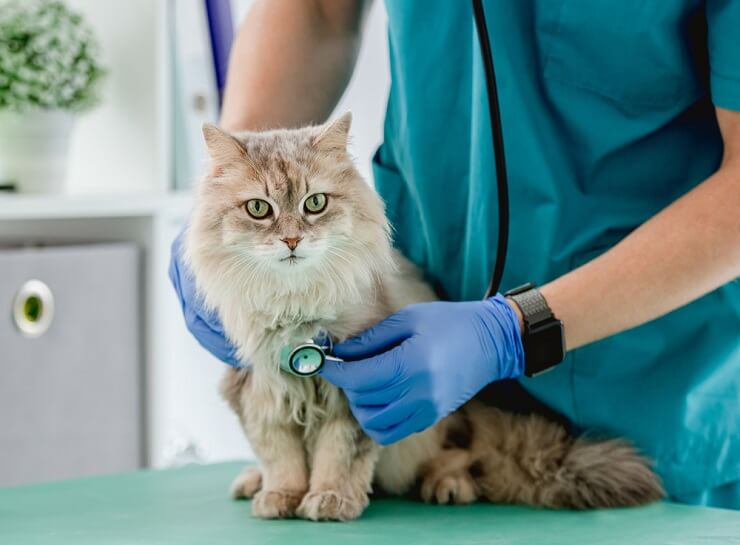
If your cat is experiencing an abnormal heart rate, your veterinarian will do a complete physical exam, including listening to your cat’s heart.
Steroids like prednisolone have a very wide dosage range depending on the condition being treated. Lower doses are used to address inflammation while higher doses will suppress the immune system. Compared to dogs on prednisone, cats generally require higher doses of prednisolone.
Because of the high degree of variability in dosing, your veterinarian should decide what dosage of prednisolone will be best for your kitty.
Conclusion
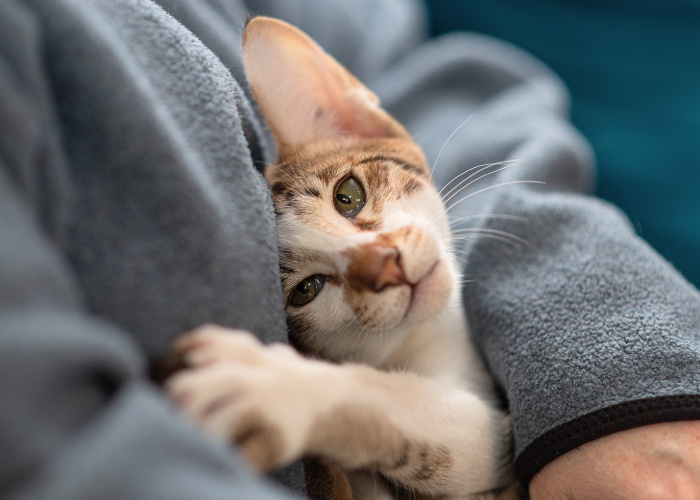
Steroids like prednisolone are extremely useful medications because they have a broad range of dosage and effects. They are necessary to get some inflammatory and immune-mediated conditions we see in cats under control.
Cats are more resistant to steroid side effects than dogs. Steroids are also attractive options as anti-inflammatories especially given that our ability to use non-steroidal anti-inflammatories in cats is very limited.
All the same, steroids must be used judiciously and cautiously under the direction of a veterinarian. Also, remember that only prednisOLONE and not prednisONE should be administered to cats. So if you have a dog at home, don’t share any steroids prescribed for your pup (or for yourself) with your kitty.
Drug Dosing Disclaimer: We are only able to provide doses for medications that are FDA approved for use in cats and only as the label guidelines dictate. For medications that are used off-label we can only provide guidelines and safety information for use. Safe and appropriate dosing for off-label medications can only be determined by a primary care veterinarian.
We encourage you to work with your veterinarian to determine if a particular medication is appropriate for your cat. Changing or adjusting a dose for your cat on your own without consulting with a veterinarian can carry risk. We do not encourage use of medications prescribed for human use in pets without first consulting with a primary care veterinarian.
